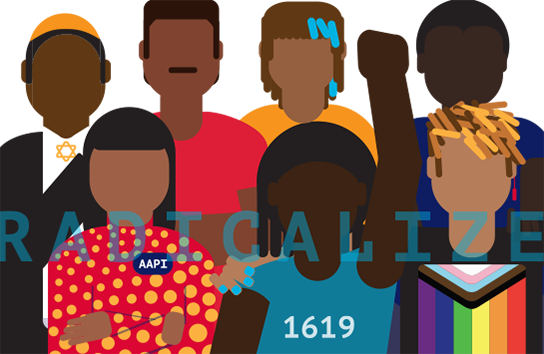Legislative Suppression of Critical Race Theory in Higher Education
INSTRUCTIONAL INNOVATION
quote
[CRT’s] major tenets are that racism is a fixture in American laws, government, and society; white supremacy serves material and psychological purposes in American society; that racial categories exist to include or exclude groups from privilege and power at various points in history; and that minoritized persons see the world in radically different ways than those who are non-minoritized.
text

On January 18, 2023, the Presidents of the Florida College System issued a joint statement reaffirming their fight against Critical Race Theory (CRT). They vowed not to “fund or support any institutional practice, policy, or academic requirement that compels belief in [CRT] or related concepts such as intersectionality, or the idea that systems of oppression should be the primary lens through which teaching and learning are analyzed and/or improved upon.”1 Their statement emerged in the midst of a flurry of anti-CRT legislation, presently 619 laws or pieces of proposed legislation, introduced into local, state, and the federal government since the 45th President of the United Stated issued the Executive Order on Combatting Race and Sex Stereotyping in 2020. The Executive Order has become the template for anti-CRT legislation. In it, the President expressed as his main concern that
- many people are pushing a different vision of America that is grounded in hierarchies based on collective social and political identities rather than in the inherent and equal dignity of every person as an individual. This ideology is rooted in the pernicious and false belief that America is an irredeemably racist and sexist country; that some people, simply on account of their race or sex, are oppressors; and that racial and sexual identities are more important than our common status as human beings and Americans.
Critical Race Theory (CRT) has been a scapegoat for the discussion of what versions of America we will teach and what versions we will resist, because it is the study of systems and structures, not individual actions. CRT is a framework of analysis that centers race and racism as key to the development of the fundamental structures that facilitate American Democracy, such as law, education, and the economy. Its major tenets are that racism is a fixture in American laws, government, and society; white supremacy serves material and psychological purposes in American society; that racial categories exist to include or exclude groups from privilege and power at various points in history; and that minoritized persons see the world in radically different ways than those who are non-minoritized.2 At its core, CRT is the study of the relationship between race, racism, and power. It is one of the banners under which critical scrutiny of our enduring American institutions occurs to explosive effect.
Recently, Governor Ron DeSantis added to the conflagration with his words at the opening of the 2023 Florida legislative session. “In Florida,” he said, “we will promote liberty and the Western tradition by realigning core curriculum, eliminating politicized bureaucracies, increasing research funding for key industries, and giving presidents and boards of trustees more control over faculty hiring.” To this end, the proposed legislation, Florida House Bill 999, would eliminate from public institutions “any major or minor in Critical Race Theory, Gender Studies, or Intersectionality, or any derivative major or minor of these belief systems, which is any major or minor that engenders the beliefs in [the concepts delineated in Florida Statute 1000.05 (4)(a)]”. These concepts, known as “divisive concepts,” have also been enacted into law in Tennessee and Oklahoma, and been introduced into the Georgia and Alabama legislatures. Among the prohibited concepts is instruction that:
- The United States of America [and the state where the legislation is introduced] are fundamentally or systemically racist;
- An individual, because of his or her race, skin color, or ethnicity, bears responsibility for actions committed by other individuals of the same race, skin color or ethnicity, whether past or present; [and]
- Meritocracy or traits such as hard work ethic are racist or were created by individuals of a particular race to oppress individuals of another race[.]
Other legislation, like that enacted in Texas, places limits on how teachers can teach history and current events, namely that they are required to teach both sides – “both sides” of such topics involving the exclusion of people of color from jury service, school desegregation, enslavement, Indigenous decimation and removal, and voting rights – and show no deference to any point of view.
The legislative onslaught is unlikely to stop, but we can prepare ourselves by staying informed, supporting our colleagues in impacted states, and utilizing the CATE resources available to facilitate inclusive education. CATE’s Inclusive Education Scholars Certificate Program is a good start.
1 Florida College System President’s Statement of Diversity, Equity, Inclusion and Critical Race Theory, January 18, 2023.
2 Richard Delgado & Jean Stefancic, Critical Race Theory: An Introduction 8-11 (3d ed. 2017).